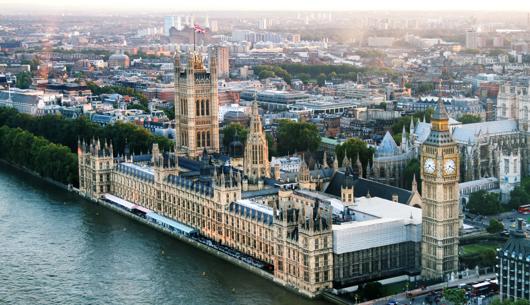The UK government has now published its long-awaited 10 Year Health Plan for England, created in response to Lord Darzi’s independent review of the NHS in England in September 2024.
The Plan, which the government says will get the NHS back on its feet and make it fit for the future, focuses on three key shifts – from hospital to community, from analogue to digital and from sickness to prevention. The development of the Plan involved extensive consultation, with input from thousands of staff members and the public and 250,000 contributions to the Change.NHS website. Browne Jacobson participated in this process; working collaboratively with our clients, we submitted our recommendations and proposals for the Plan in December 2024.
This article explores the key mental health commitments and innovations set out in the Plan, and what they mean for healthcare professionals, service users, and the wider system.
1. Expanding the workforce
According to the government’s latest data, more than 6,700 extra mental health workers have already been recruited since Labour came into power last July. The government states it is committed to its target of hiring 8,500 additional mental health staff by the end of this Parliament.
2. New mental health emergency departments
The government has promised to invest £120 million towards developing approximately 85 dedicated mental health emergency departments (MHEDs), aimed at providing patients with timely access to support and care. These units will be staffed by specialist doctors and nurses, providing round-the-clock support for patients experiencing a mental health crisis.
Patients will be able to access the MHEDs directly, or alternatively arrive by ambulance, or be referred by GPs, police or the NHS 111 service. Assessments are expected to be provided within four hours, followed by short-term support and either safe discharge or onward referral.
The departments are set to be open 24 hours a day, 7 days a week, and will be designed to provide a calm environment – in contrast to the noise and chaos of A&E units, where many individuals experiencing a mental health crisis are currently taken. MHEDs will work closely with physical health A&E teams to make sure any physical health needs are met.
3. From hospital to community: The new neighbourhood mental health model
The government considers that healthcare in England is organised into multiple, fragmented siloes - across community care, primary care, mental healthcare, hospitals, social care providers, local government and the voluntary sector. The NHS is not currently operating as a single, coordinated, patient-orientated service in the government’s view.
The government’s vision is to create a “neighbourhood health service”, bringing care into local communities. It wants to see more integrated working within the NHS and between the NHS, local government and the voluntary sector.
The government pledges that mental health services will be transformed into neighbourhood care models – providing open access to specialist services and holistic support in community locations 24 hours a day, 7 days a week. This neighbourhood model is already being piloted in six locations across England, including Tower Hamlets and Lewisham in London, and Gleedless and Heeley in Sheffield.
4. From analogue to digital: Digitally enhancing mental health care
The government says it has a bold vision of the NHS becoming a fully digitally enabled service, operating 24/7 both online and offline. It plans to:
- Introduce a new Single Patient Record (SPR), bringing together all a patient’s medical records into one place. The SPR would make information visible across different care settings and enable clinicians to better understand contextual as well as clinical information. It would also offer a high-quality summary of the patient’s clinical history.
- Potentially expand the use of ambient AI technology to listen to what is being said during patient consultations, identify the key points, and record them into the care record. This technology can also capture clinical and administrative information without requiring clinicians to enter it manually. The government believes it will help healthcare professionals to get more done, focus more actively on their patient and listen to them more effectively.
- Develop the NHS App so that it becomes the “full front door to the entire NHS.” The App would use AI-algorithms to take a patient’s descriptions of their worries or symptoms, ask the right follow-up questions and provide personalised guidance or, in some cases, advice on self-care. The government says that the NHS App will provide patients with easier and more timely access to mental health support and that patients will be able to self-refer for talking therapies, without needing a GP appointment.
- Enable parents to access support for any concerns they have regarding their children’s mental health via the NHS App.
5. From sickness to prevention and early intervention: Furthering mental health support for children and young people
The Plan highlights that, in England, more people are falling sick earlier in life. A core objective of the Plan is to shift the focus from crisis response to prevention and early intervention.
The Plan states that prevention starts with children and young people, and that almost half of mental health conditions develop before the age of 18. The government therefore plans to work with schools, colleges and universities to better identify and meet children’s mental health needs. Specifically, it says it will:
- Continue to roll out mental health support teams in schools and colleges, to reach full national coverage by 2029 to 2030.
- Develop new Young Futures Hubs, which will make it easier for young people to access mental health, career and pastoral support in their communities. These will be staffed by youth workers, mental health support workers and careers advisers.
- Utilise the additional 8,500 mental health staff recruited by the government to reduce long waits for both children and adults.
- Work with local authorities to ensure that children with the most complex mental health needs in residential care get the treatment and support they need to avoid even more expensive hospital admissions and repeated emergency department visits.
- Bring forward a schools white paper in the autumn, which will detail the government’s approach to Special Educational Needs and Disabilities reform, ensuring joined-up support for children and young people.
- Publish a new National Youth Strategy this summer, setting out how the government will support young people in all aspects of their lives including, support for mental health, wellbeing and the ability to develop positive social connections.
6. Clearer accountability and stronger incentives for high quality care
The government plans to revitalise the National Quality Board (NQB) and task it with developing a new quality strategy by March 2026. All other bodies, including Royal Colleges, will feed into the NQB. It will be responsible for the oversight of quality measurement, transparency and improvement.
The NQB will also work with clinicians and patients to oversee the development of a new series of service frameworks to accelerate progress in conditions where there is potential for rapid and significant improvements in quality of care and productivity. Mental health is an early priority for these modern service frameworks, including severe and enduring mental illness. The frameworks will define an aspirational, long-term outcome goal, identify the best evidenced interventions to achieve this goal and set standards on how the interventions should be used.
Conclusion
The government’s 10-Year Health Plan sets out significant changes for mental health care in England, including the expansion of the workforce, the introduction of dedicated mental health emergency departments, and a shift towards community-based and digital services. Whilst the commitments in the Plan are welcome, the true test will lie in the delivery. Ensuring that these reforms are adequately funded, equitably implemented, and accessible to all will require sustained political will, cross-sector collaboration, and ongoing engagement with service users and professionals. As the plan moves from paper to practice, maintaining transparency, accountability, and a relentless focus on quality will be essential to achieving lasting improvements in mental health outcomes for individuals and communities across the country.
Browne Jacobson has a dedicated national team of specialist mental health lawyers providing a full service offering to mental health commissioners, providers and the private sector able to support your organisation. For further information please contact us, using the details below.

Katie Viggers
Professional Development Lawyer
katie.viggers@brownejacobson.com
+44 (0)330 045 2157









































